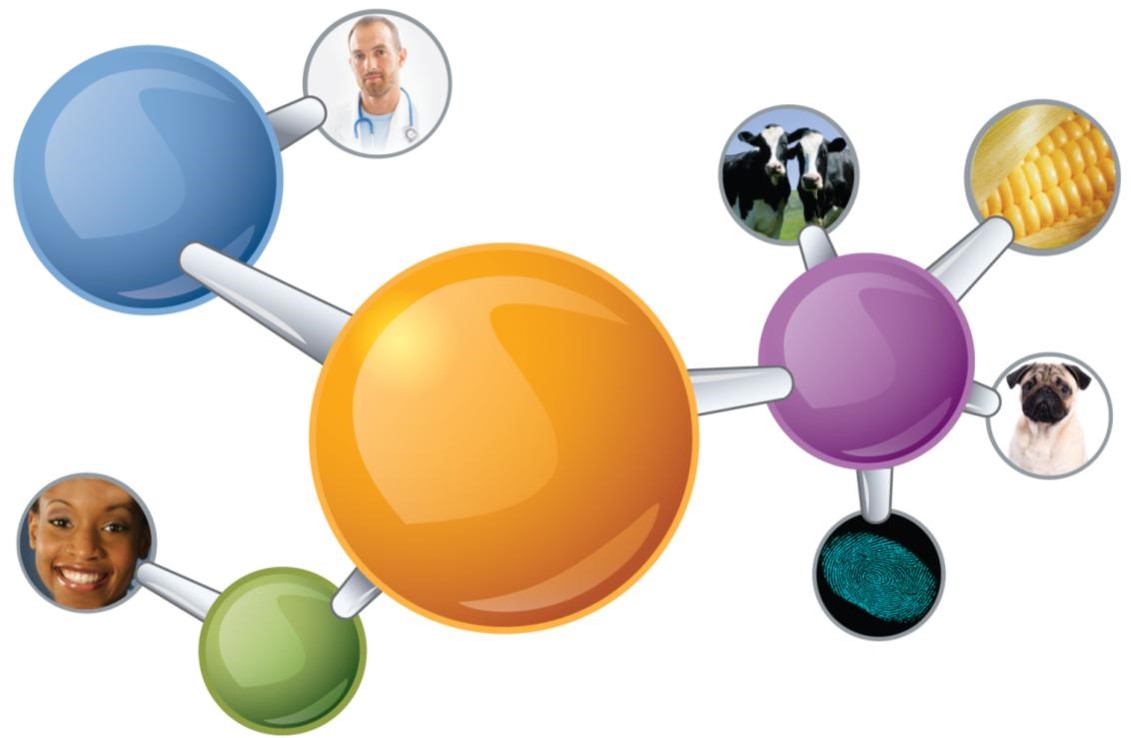Illumina

Science that can apply existing scientific knowledge to real world practice!
Forensic Genomics
More conclusive results in forensic testing are now a practical reality thanks to advances in genomics. Illumina technology and informatics deliver far more insight from DNA than traditional methods, with a much higher resolution than ever before possible. You’ll find the answers you need efficiently with a greater degree of certainty.
Illumina sequencing by synthesis (SBS) technology on the MiSeq FGx Forensic Genomics System analyzes all global short tandem repeats (STRs). It also addresses nearly 200 forensically relevant single nucleotide polymorphisms (SNPs). This is all done with one simple, unified workflow, from less than 1 ng of sample.
Commercial Agricultural Applications
Illumina sequencing and genotyping technologies touch many steps of the agrigenomics pipeline. Our technology enhances knowledge of the genetic foundations of production, reproduction, and health for a wide variety of applications and species:
Infectious Disease Surveillance
Genomics is expanding our understanding of pathogen evolution, host-pathogen interactions, and antibiotic resistance.
Next-generation sequencing (NGS) provides a universal, hypothesis-free method that can be used with viruses, bacteria, or parasites. Genomic analysis with NGS provides high resolution information to distinguish pathogen strains that differ by as little as one SNP, and can replace multiple tests.
Illumina NGS technology delivers rapid results and high data quality that infectious disease professionals are adopting as a modern tool to identify, track and respond to outbreaks.
- Microbial whole-genome sequencing is the primary method for infectious disease surveillance.
Molecular Epidemiology
Next-generation sequencing (NGS) allows highly accurate, hypothesis-free analysis of multiple isolates for detection, replacing multiple tests to identify the organism and examine resistance and virulence. High-resolution pathogen typing using whole-genome sequencing data can differentiate organisms that many current methods cannot distinguish.
- The primary NGS application for molecular epidemiology is whole-genome sequencing.









